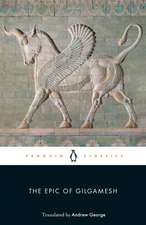Politics
Autor Aristotle Editat de H. W. C. Davisen Limba Engleză Hardback – 31 oct 2008
| Toate formatele și edițiile | Preț | Express |
|---|---|---|
| Paperback (14) | 51.36 lei 3-5 săpt. | |
| CREATESPACE – | 51.36 lei 3-5 săpt. | |
| CreateSpace Independent Publishing Platform – | 57.07 lei 3-5 săpt. | |
| Penguin Books – 16 sep 1981 | 70.70 lei 24-30 zile | +27.42 lei 4-10 zile |
| CREATESPACE – 30 apr 2010 | 82.39 lei 3-5 săpt. | |
| CreateSpace Independent Publishing Platform – | 92.16 lei 3-5 săpt. | |
| CREATESPACE – 16 dec 2012 | 101.60 lei 3-5 săpt. | |
| CREATESPACE – | 109.28 lei 3-5 săpt. | |
| – | 111.00 lei 3-5 săpt. | |
| – | 116.60 lei 3-5 săpt. | |
| CREATESPACE – | 118.50 lei 3-5 săpt. | |
| Hackett Publishing Company – 15 mar 1998 | 123.17 lei 3-5 săpt. | +26.78 lei 4-10 zile |
| Hackett Publishing Company – 10 aug 2012 | 136.27 lei 3-5 săpt. | |
| Hackett Publishing Company,Inc – 14 feb 2017 | 166.90 lei 3-5 săpt. | +40.19 lei 4-10 zile |
| TREDITION CLASSICS – 31 oct 2011 | 224.65 lei 6-8 săpt. | |
| Hardback (3) | 179.82 lei 6-8 săpt. | +50.99 lei 4-10 zile |
| Hackett Publishing Company,Inc – 14 feb 2017 | 389.66 lei 3-5 săpt. | +50.99 lei 4-10 zile |
| A & D Publishing – 29 mai 2009 | 179.82 lei 6-8 săpt. | |
| COSIMO CLASSICS – 31 oct 2008 | 231.97 lei 6-8 săpt. |
Preț: 231.97 lei
Nou
44.40€ • 48.25$ • 37.32£
Carte tipărită la comandă
Livrare economică 21 aprilie-05 mai
Specificații
ISBN-10: 1605203297
Pagini: 368
Dimensiuni: 140 x 216 x 24 mm
Greutate: 0.6 kg
Editura: COSIMO CLASSICS
Locul publicării:United States
Notă biografică
Cuprins
Aristotle's Life and Works
Aristotle's Politics in the Past
Aristotle's Politics Today
Notes by the Reviser
Reviser's Introduction, by T. J. Saunders
A Modern Report on the Politics
Teaching and Research in the Lyceum
The Contents and Structure of the Politics
Aristotle's Philosophical Assumption
Why Read the Politics?
The Revised Translation
Principles of Revision
Translation of Key Terms
Refractory Terms
Italicized Prefaces to Chapters
Numerical References
Footnotes
Bibliographies
Table of Contents and Index of Names
Acknowledgments
THE POLITICS
Book I
Preface to Book I
i. The State as an Association
ii. The State Exists by Nature
The Two "Pairs"
Formation of the Household
Formation of the Village
Formation of the State
The State and the Individual
iii. The Household and Its Slaves
iv. The Slave as a Tool
v. Slavery as Part of a Universal Natural Pattern
vi. The Relation between Legal and Natural Slavery
vii. The Nature of Rule over Slaves
viii. The Natural Method of Acquiring Goods
ix. Natural and Unnatural Methods of Acquiring Goods
x. The Proper Limits of Household-Management; The Unnaturalness of Money-lending
xi. Some Practical Considerations, Especially on the Creation of Monopoly
xii. Brief Analysis of the Authority of Husband and Father
xiii. Morality and Efficiency in the Household
Book II
i. Introduction to Ideal States: How Far Should Sharing Go?
ii. Extreme Unity in Plato's Republic
iii. Extreme Unity is Impracticable
iv. Further Objections to Community of Wives and Children
v. The Ownership of Property
vi. Criticisms of Plato's Laws
vii. The Constitution of Phaleas
viii. The Constitution of Hippodamus
ix. Criticism of the Spartan Constitution
The Helots
Spartan Women
Property
The Ephors
The Board of Elders
The Kings
Some Common Meals
Some Further Criticisms
x. Criticism of the Cretan Constitution
xi. Criticism of the Carthaginian Constitution
xii. Solon and Some Other Lawgivers
Book III
i. How Should We Define "Citizen"?
ii. A Pragmatic Definition of "Citizen"
iii. Continuity of Identity of the State
iv. How Far Should the Good Man and the Good Citizen Be Distinguished?
v. Ought Workers to Be Citizens?
vi. Correct and Deviated Constitutions Distinguished
vii. Classification of Correct and Deviated Constitutions
viii. An Economic Classification of Constitutions
ix. The Just Distribution of Political Power
x. Justice and Sovereignty
xi. The Wisdom of Collective Judgments
xii. Justice and Equality
xiii. The Sole Proper Claim to Political Power
xiv. Five Types of Kingship
xv. The Relation of Kingship and Law (1)
xvi. The Relation of Kingship and Law (2)
xvii. The Highest Form of Kingship
xviii. The Education of the Ideal King
Book IV
i. The Tasks of Political Theory
ii. Consitutions Placed in Order of Merit
iii. Why There are Several Constitutions
iv. The Parts of the State and the Classification of Democracies
Definitions of Democracy and Oligarchy
The Parts of the State, and Resulting Variety among Constitutions (1)
Plato on the Parts of the State
The Parts of the State, and Resulting Variety among Constitutions (2)
Varieties of Democracy
v. The Classification of Oligarchies
vi. Four Types of Democracy and Four of Oligarchy
vii. Varieties of Aristocracy
viii. Polity Distinguished from Aristocracy
ix. Polity as a Mixture of Oligarchy and Democracy
x. Three Forms of Tyranny
xi. The Merits of the Middle Constitution
xii. Why Democrats and Oligarchs Should Cultivate the Middle Ground
xiii. Right and Wrong Strategems to Ensure a Majority for the Constitution
xiv. The Deliberative Element in the Constitution
xv. The Executive Element in the Constitution
xvi. The Judicial Element in the Constitution
Book V
i. Equality, Justice, and Constitutional Change
ii. Sources of Constitutional Change (1)
iii. Sources of Constitutional Change (2)
iv. The Immediate Occasions of Constitutional Change
v. Why Democracies Are Overthrown
vi. Why Oligarchies Are Overthrown
vii. The Causes of Factions in Aristocracies
viii. How Constitutions May Be Preserved (1)
ix. How Constitutions May Be Preserved (2)
x. The Origins and Downfall of Monarchy
xi. Methods of Preserving Monarchies, with Particular Reference to Tyranny
xii. The Impermanence of Tyrannies; Plato on Constitutional Change
Book VI
i. How Do Constitutions Function Best?
ii. Principles and Practices of Democracies
iii. Ways of Achieving Equality
iv. The Best Democracy
v. How Democracies May be Preserved
vi. The Preservation of Oligarchies (1)
vii. The Preservation of Oligarchies (2)
viii. A Comprehensive Review of Officialdom
Book VII
i. The Relation between Virtue and Prosperity
ii. The Active Life and the Philosophic Life (1)
iii. The Active Life and the Philosophic Life (2)
iv. The Size of the Ideal State
v. The Territory of the Ideal State
vi. The Importance of the Sea
vii. The Influence of Climate
viii. Membership and Essential Functions of the State
ix. Citizenship and Age-Groups
x. The Food-Supply and the Division of the Territory
xi. The Siting and Defence of the City
xii. The Siting of Markets, Temples and Communal Refectories
xiii. Happiness as the Aim of the Constitution
xiv. Education for Citizenship
xv. The Proper Education for Cultured Leisure
xvi. Sex, Marriage and Eugenics
xvii. The Main Periods of Education; Censorship
Book VIII
i. Education as a Public Concern
ii. Controversy about the Aims of Education
iii. Leisure Distinguished from Play; Education in Music (1)
iv. The Limits of Physical Training
v. Education in Music (2)
vi. Gentlemen versus Players
vii. Melodies and Modes in Education
Select Bibliographies
Glossaries:
Greek-English
English-Greek
Index of Names
Recenzii
"I used to encourage students not to be put off from the brilliance of Aristotle's ideas by the density of his imposing prose, until I came across the rigorous and readable set of translations by Joe Sachs. What strikes me most in this welcome new translation of Aristotle's Politics is the sense of Aristotle as a man thinking carefully how to speak about political realities he studied and witnessed, rather than a treatise-builder expounding political doctrines." -- Nathan Andersen, Eckerd College
"Joe Sachs' masterful translation of Aristotle's Politics is the latest in a series encompassing Aristotle's Physics (1995), Metaphysics (1999), On the Soul & On Memory and Recollection (2001), Nicomachean Ethics (2002), Poetics (2006) and Rhetoric (2009). This fact alone sets him apart from all other recent translators of the Politics: He is the only one who is not a specialist in one area of Aristotelian philosophy and his holistic command of the corpus allows him to deliver the most nuanced and precise translations available in English. In addition, he set himself the goal of avoiding in them the use of the traditional scholastic terminology which obstructs so much the interpretation of Aristotle's thought. The Politics poses a unique challenge for the translator because it is a work of political philosophy, hence it necessarily has two kinds of readers in view and its language is both logically precise and rhetorically powerful. Joe Sachs' translation renders both aspects with unmatched elegance and precision." -- Antonio Marino Lpez, Universidad Nacional Autnoma de Mxico
"Sachs' erudite, yet accessible, extremely careful, and obviously thoughtful translation of Aristotle's Politics is impressive beyond measure. This translation is a must, both for scholars working on or otherwise interested in Aristotle's Politics as well as for students and others who might be reading this text for the first time. Indeed, Sachs' text offers an understandable translation of one of the most important Aristotelian texts, while remaining extremely faithful to the original Greek. In addition, the supplementary features of Sachs' translation, which include notes that help provide further understanding and context for certain claims, as well as the Glossary and the Summary of Contents, which appear at the end of the text, provide wonderful aids for those who are invested in understanding Aristotle's Politics." -- Corinne Painter, Washtenaw Community College
"Joe Sachs has an extraordinary ability to render ancient Greek into English sentences that are so clear and direct that they help readers to look past Aristotle's technical terminology and reflect on the philosophical issues in the text. For beginning students Sachs's translations are an ideal vehicle through which to engage Aristotle's philosophy. For those of us who are more advanced, they are sufficiently different from the traditional translations to open fresh ways of thinking about the texts. Sachs does a fine job with the Politics . The translation is very readable and accurate, and the notes and glossary are insightful. The introductory essay by Lijun Gu valuably emphasizes the importance of book IV." -- Edward Halper, University of Georgia









